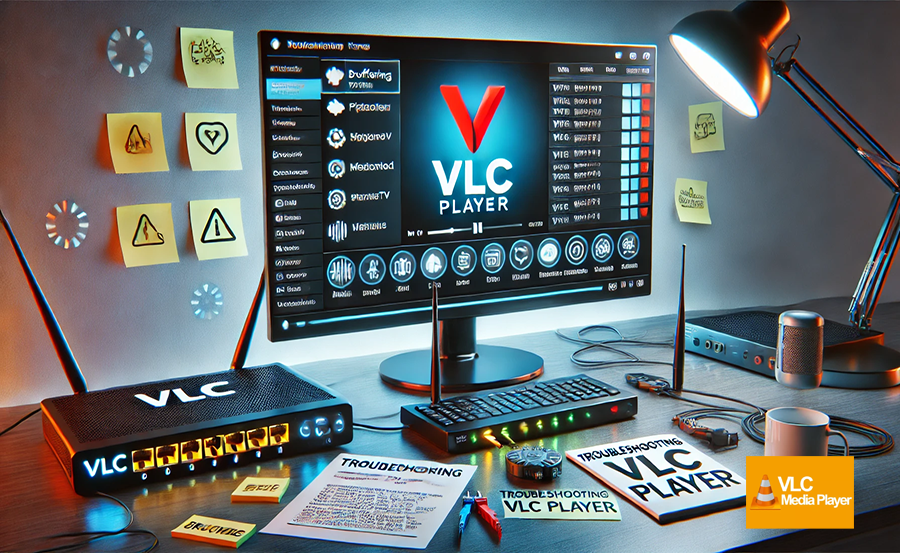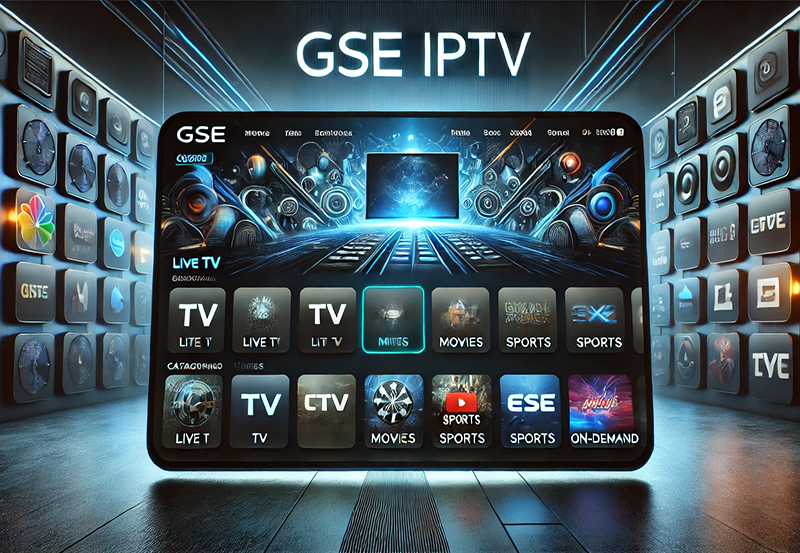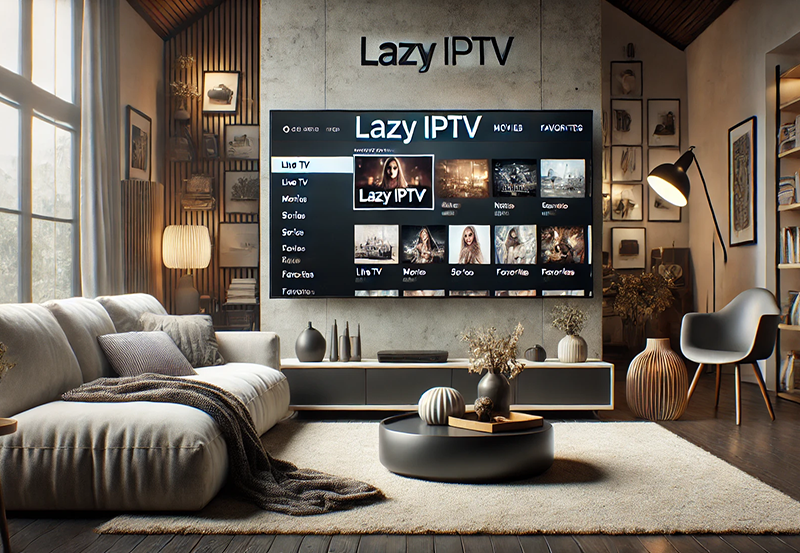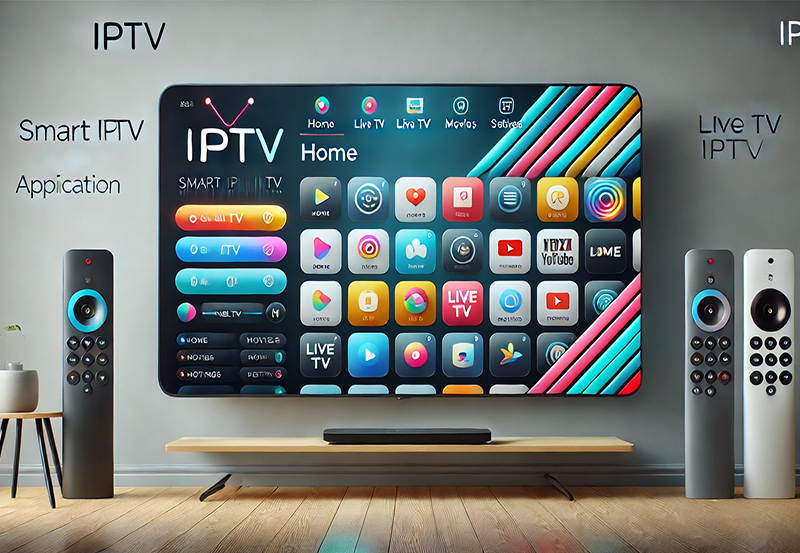You’ve settled in for a night of thrilling entertainment, your favorite sports events await, and the popcorn is ready. But just as things start to get exciting, your IPTV stream begins to buffer—and just like that, your anticipation hits a wall. So, why does your IPTV stream keep stopping on VLC, and what can you do about it? This article explores the reasons and offers actionable solutions to elevate your IPTV viewing journey, ensuring you never miss a moment of the action.
Understanding IPTV and its Challenges
Before we jump into troubleshooting, let’s first understand what IPTV is. IPTV, or Internet Protocol Television, delivers television content over the internet instead of traditional cable or satellite. With the advent of this technology, viewers enjoy a wide array of channels and services, often at a fraction of the price compared to traditional methods.
Why IPTV is Popular
There’s a growing demand in the market for IPTV services. Here’s why:
Expert Tip:
Sports enthusiasts, rejoice! Get IPTV for sports lovers and watch live games anytime, anywhere.
- Cost-efficiency compared to cable
- Access to on-demand content
- Availability across multiple devices
Despite its advantages, IPTV can be plagued by streaming issues, often manifesting as buffering, lag, or outright stopping.
Common IPTV Streaming Problems
The problems with IPTV aren’t always rooted in the technology itself. Most issues are linked to network or configuration errors that can usually be remedied with the right approach. These interruptions can range from mild inconvenience to significant disruption, especially for live sports enthusiasts.
Primary Causes of IPTV Buffering
Several factors can lead to buffering on VLC, causing frustrations during viewing sessions:
- Insufficient internet bandwidth
- Network congestion
- Inadequate server capacity from providers
Is Your Internet Connection to Blame?
Let’s be real—high-quality streaming demands a solid internet connection. Your connection speed can significantly impact your IPTV experience.
Assessing Your Internet Speed
For a seamless viewing experience, a minimum speed of 5 Mbps for standard definition (SD) and at least 25 Mbps for high definition (HD) content is recommended.
How can you check your current speed? Access online speed test tools. If the results fall below the recommendations, you might confront buffering issues. In this case, contacting your Internet Service Provider (ISP) for a faster plan could be your antidote.
Enhancing Network Performance
If your internet package meets requirements but you still face issues, consider these steps:
- Connect your device to the router using an Ethernet cable for a stable connection.
- Limit the number of devices accessing the internet simultaneously.
- Update your router firmware to the latest version.
These might seem small, but these actions collectively can dramatically improve performance.
Choosing Your IPTV Service Wisely
Not all IPTV services are created equal. The choice of service can influence your overall experience. Seek those that are recognized for reliability, especially when streaming live sports—the best IPTV for sports enthusiasts.
Top IPTV Services to Consider
We’ve researched some top IPTV service providers that ensure stable streaming experiences:
- Service A – Known for its wide sports coverage and stability.
- Service B – Offers diverse channel options with excellent customer support.
- Service C – Praised for its user-friendliness and cost-efficiency.
Selecting the most suitable provider can make a significant difference, helping you steer clear of unscheduled pauses during viewing.
Evaluating Service Reliability
An efficient way to verify service reliability is by reading reviews and engaging with user communities. Fellow streamers often share insightful experiences and can guide you toward making the best choice for your needs.
Tweaking VLC Settings to Minimize Buffering
Adjusting VLC settings is another effective approach to tackle IPTV stream interruptions. VLC’s versatility allows users to modify settings tailored to their internet connection and desired output quality.
Adjusting Buffer Size
The buffer size in VLC determines how much data is preloaded before playing. Increasing the buffer size often helps in reducing glitches:
- Open VLC and navigate to ‘Preferences.’
- Click ‘All’ in the lower-left corner to access advanced settings.
- Under ‘Advanced,’ increase the cache value to 1000ms or higher, depending on your network’s stability.
Remember, while a larger buffer may improve playback, it can also delay playback start.
Video Output Module Settings
Altering the video output can also be beneficial in alleviating stuttering:
- Navigate to ‘Preferences’ in VLC.
- Select ‘Video,’ then ‘Output.’
- Experiment with different modules such as ‘OpenGL’ or ‘DirectX’ to fit your system’s best output setting.
Hardware and Software Considerations
Your device’s hardware and software configurations can impact the playback performance. It’s crucial to ensure that your device’s specifications meet the demands of high-quality IPTV streams.
Device Requirements
Ensure your device runs on up-to-date operating systems and has sufficient processing power and RAM. Devices with outdated systems or low specifications can struggle to keep up, particularly with HD content.
Keeping Software Updated
Software updates often contain patches to improve performance and compatibility with streaming technologies. It’s advisable to regularly update VLC and other software that might affect streaming. Additionally, turning off unnecessary background apps can free up resources.
Troubleshooting Common Issues
Sometimes, figuring out what’s wrong involves a little trial and error. Let’s look at a few troubleshooting tips that might just save your streaming session.
Resetting Network Equipment
A simple and effective first step—restart your router and streaming device. This straightforward action can resolve many connectivity issues without delving deeper into more complex solutions.
Clear Cache and Cookies
In the digital world, cache and cookies can accumulate, slowing down your system. Clearing them periodically can lead to performance enhancements, ensuring smoother streaming sessions.
Seeking Professional Help
If you’re overwhelmed or unable to resolve an issue independently, it might be time to consult with a tech-savvy friend or professional. Sometimes, fresh expertise can pinpoint overlooked problems and provide lasting solutions.
Enhancing the Overall IPTV Experience
Once you’ve tackled the stuttering and buffering issues, the next step is to boost your IPTV journey. Here are some tips:
Finding the Right Hardware
Invest in hardware tailored for streaming media, like a dedicated IPTV box or a high-performance Smart TV. These devices typically handle streaming better than standard ones.
Customizing Your Viewing Preferences
Take advantage of the flexible features many IPTV services offer, such as customizable channel lists, and on-demand services, enhancing your viewing experience.
Bringing It All Together Without the Clichés
Facing streaming interruptions can be quite the headache, especially when geared up for excitement on-screen. By identifying the common causes and applying these tailored solutions, you’ll transform your IPTV experience into one of seamless entertainment enjoyment. Embrace the insights shared here to watch without worry, knowing that every element of your setup is fine-tuned for optimal performance.
Frequently Asked Questions (FAQ)

Why do my streams buffer despite a high-speed internet connection?
Stabilizing network connections involves more than just having high speed; consider network congestion, device capacity, and the reliability of your IPTV service provider.
How often should I update VLC and my streaming device?
Regular updates are crucial. Check for updates monthly or enable automatic updates to ensure your device and applications maintain optimal performance.
What’s the best way to improve streaming on multiple devices simultaneously?
To manage multiple devices, ensure your internet plan supports high bandwidth, and use a robust router capable of effectively distributing the connection.
Can switching IPTV services really make a difference?
Indeed! A more stable and reliable IPTV service can significantly affect streaming quality. Research to find the best IPTV for sports or whatever your preference might be.
Should I use a VPN with IPTV?
A VPN can provide privacy and unlock geographically restricted content, but make sure it’s a high-speed VPN to avoid added latency.
Does my router’s position affect streaming quality?
Yes, the router’s position can influence signal strength. Place it centrally or closer to your device for stronger connectivity.
Are there any free alternatives to enhance IPTV streaming?
Explore free tools such as network monitoring software to optimize your connection and adjust VLC settings without incurring additional costs.
Watch IPTV on Xbox: Tips and Tricks for a Seamless Experience





